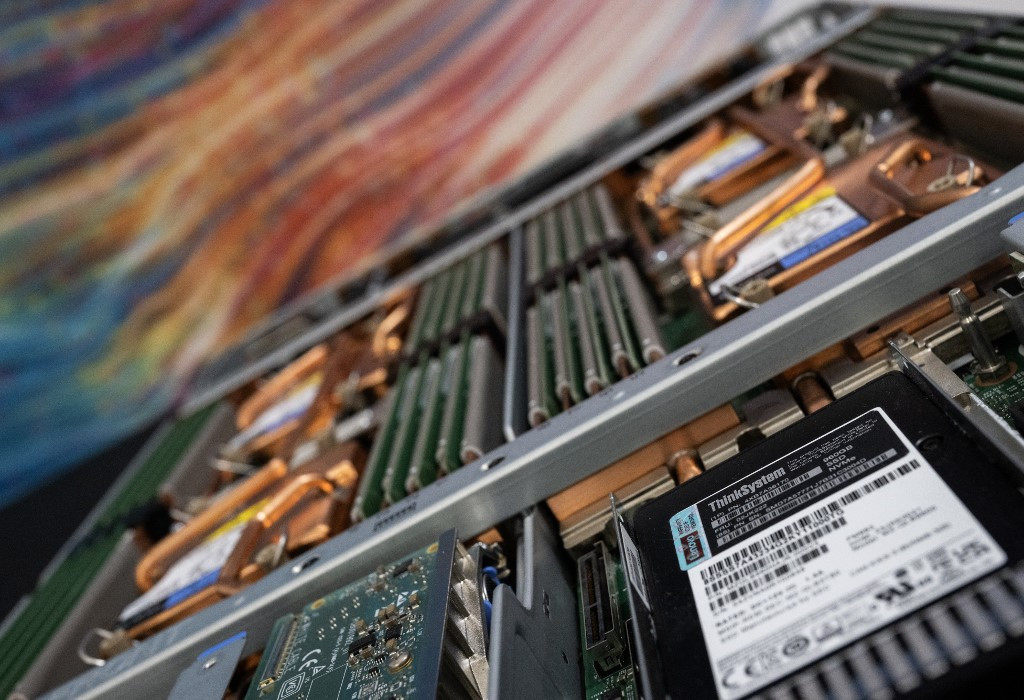Popular Reads
Top Results
Can't find what you're looking for?
View all search resultsPopular Reads
Top Results
Can't find what you're looking for?
View all search resultsThe AI boom hits a crossroads in 2026
Change text size
Gift Premium Articles
to Anyone
A
fter three years of breakneck growth and soaring valuations, the AI industry enters 2026 with some of the euphoria giving way to tough questions.
Here is a look at what is at stake:
Bubble goes pop?
Money is pouring into artificial intelligence, with spending expected to reach more than US$2 trillion worldwide in 2026, according to the consulting firm Gartner.
But concern is growing. Stock markets are closely monitoring tech giants Apple, Microsoft, Google, Amazon and Nvidia, and startups like OpenAI, amid fears of a speculative bubble.
Several major investors -- including Japan's SoftBank and Peter Thiel --divested Nvidia shares in mid-November.
"No company is going to be immune, including us," Google CEO Sundar Pichai warned.
Yet Nvidia reported "off the charts" demand for its chips, indicating the fever continues.
Jobs under threat?
The debate over whether AI will destroy jobs continues, with answers still elusive.
"The AI phenomenon is here and influencing how firms think about the labor force," US Fed Vice Chair Philip Jefferson said.
True AI believers think employment will be so transformed that a universal income will be needed.
Most forecasts see gradual change. McKinsey projects 30 percent of US jobs could be automated by 2030, with 60 percent significantly altered.
Gartner analysts suggest AI will create more jobs than it eliminates by 2027.
Superintelligence now?
AI innovation raises the specter of superintelligent machines like those in science fiction.
Anthropic founder Dario Amodei contends the next level of AI could debut in 2026 and become smarter than Nobel Prize winners.
This artificial general intelligence (AGI) will work at a higher standard than any person, he said.
OpenAI chief Sam Altman said by early 2028 that his ChatGPT-maker could create a "legitimate AI researcher" capable of discoveries.
Meta CEO Mark Zuckerberg spent hundreds of millions of dollars in 2025 hiring researchers to achieve AGI.
But Meta's departing Chief AI Scientist Yann LeCun calls talk of manufacturing AI "geniuses" in a data center "complete BS."
Media facing tidal wave
Generative AI represents "the largest transformation in the information ecosystem since the printing press," consultant David Caswell told AFP.
Traditional media face threats from chatbots and Google's AI overviews, which regurgitate content without users visiting original sites, eroding traffic and revenue.
Survival options include becoming high-value products like The Economist; implementing blocking techniques; or winning compensation through lawsuits or partnerships, as the New York Times, Associated Press and AFP have done.
Clean up the slop
Despite promises of cancer cures and climate solutions, many see "AI slop -- low-grade AI-generated content -- as the technology's most visible impact for now.
Creating slop requires little effort but generates clicks and revenue by gaming platform algorithms.
These creations, often presented as real, saturate social feeds with content ranging from fake Spotify bands to TikTok videos claiming to show explosions on the front lines in Ukraine.
The platforms have responded with labeling, moderation, and anti-spam measures, though no silver bullet has emerged to stop the tide.










